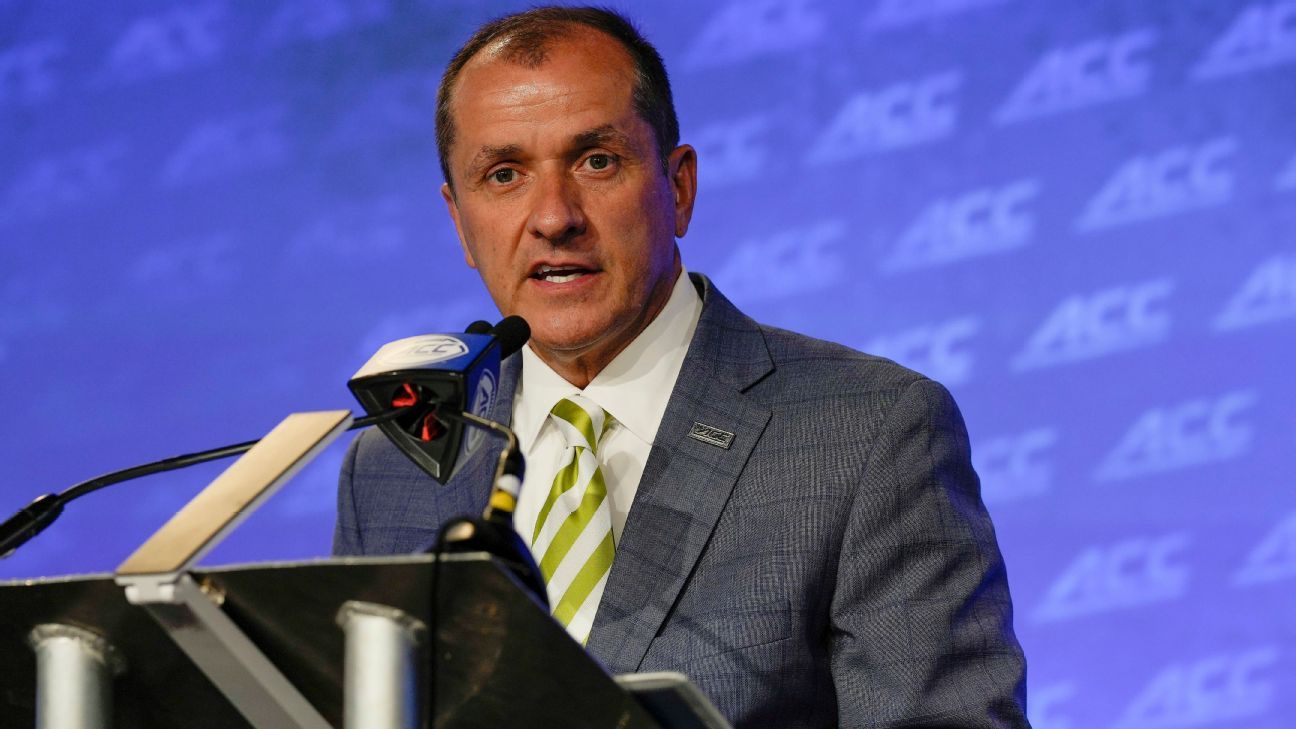All 10 FBS commissioners are unanimous in their support for three proposed rules changes that are being discussed this week and aim to shorten the length of college football games, ACC commissioner Jim Phillips told ESPN on Wednesday.
College football leaders are meeting this week in Indianapolis where they are considering changes that include running the clock after a first down is awarded, except in the last two minutes of either half; eliminating the option for teams to call consecutive team timeouts; and carrying over any fouls to the next quarter instead of finishing with an untimed down.
“Even if it’s at a minimal amount, it’s going to reduce the number of impact plays,” said Phillips, who is the chair of the NCAA’s “Game Length” subgroup. “It should help with the length of the game. I think these are noncontroversial, I really do, and I hope we’ll be able to move them through and they should be a part of the ’23 season.”
Steve Shaw, NCAA football secretary rules-editor and officials coordinator, told ESPN on Tuesday that the combined changes are estimated to shorten the average length of games by seven to eight minutes and eight plays.
Phillips said there has been a focus over the past several months on identifying the best ways to reduce impact plays as college football prepares for a 12-team playoff beginning in 2024. It’s unlikely but possible that a team could play 17 games in one season, including the conference championship game, a first-round game, quarterfinal, semifinal and national championship — plus the 12-game regular season.
“Everybody’s concerned about extending the season over potentially 17 games,” Phillips said during a phone interview from the ACC women’s basketball tournament in Greensboro, North Carolina. “We started with a 365-day calendar, which was FBS-driven and part of that was a review of length of game, pace of play, number of plays, but the focus is on eliminating the number of impact plays through the course of a season.
“With expansion coming in 2024, we wanted a thorough review of options to reduce the number of plays, which is a really high priority. It’s just the beginning, this is not the finished product. The goal is player health and safety.”
According to Shaw, college football games have averaged 180 plays per game over the past three regular seasons and typically last three hours, 21 minutes. The rules committee and competition committee are meeting jointly this week, and the rules committee is expected to make public on Friday any proposed changes that ultimately have to be approved by the playing rules oversight panel in April.
One other potential rule change that has been discussed but hasn’t gained overwhelming support is restarting the game clock after an incomplete pass when the ball is ready for play. Currently, the clock stops on an incomplete pass — and that would continue — but it would restart when the ball is set down and the official steps away.
